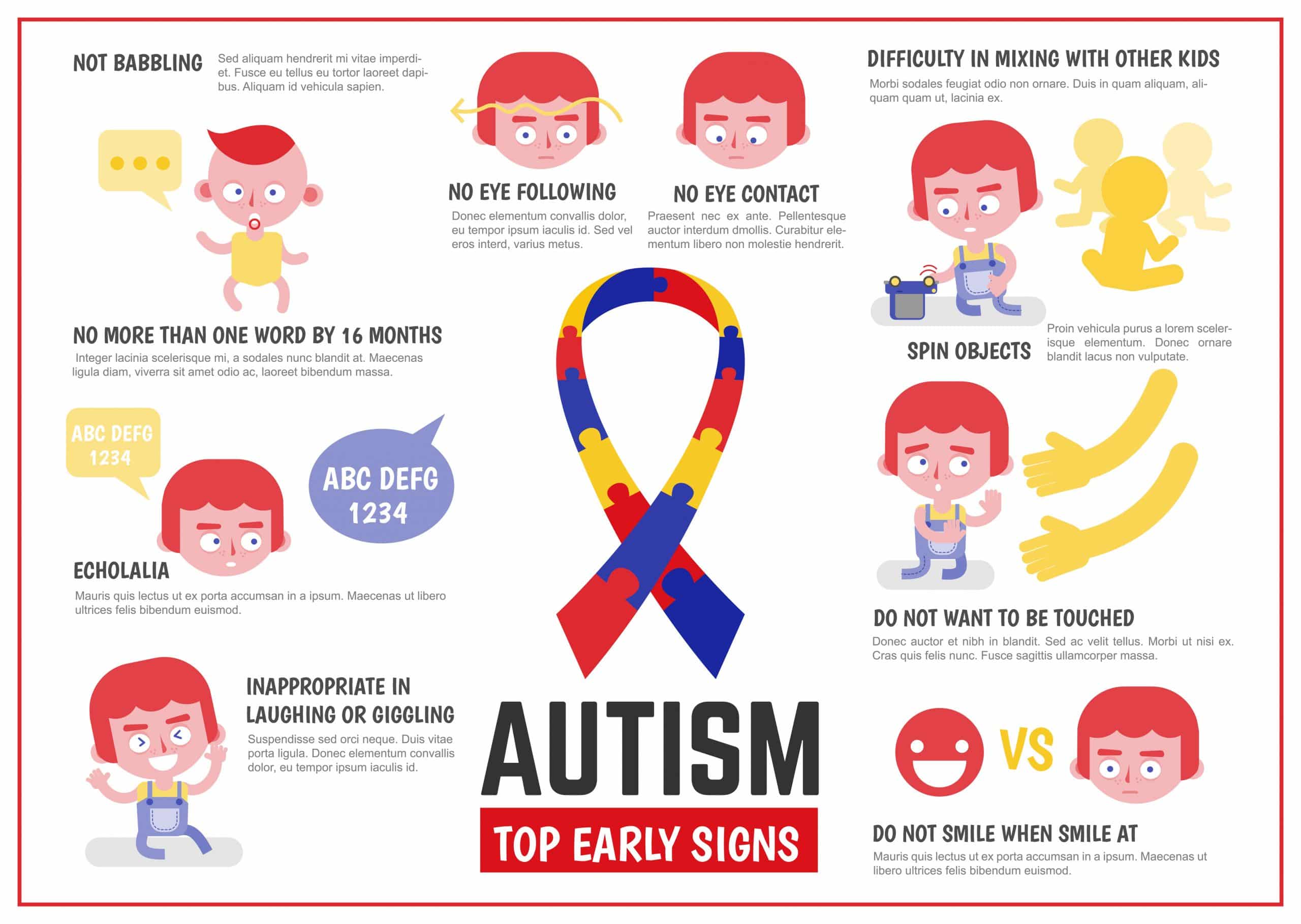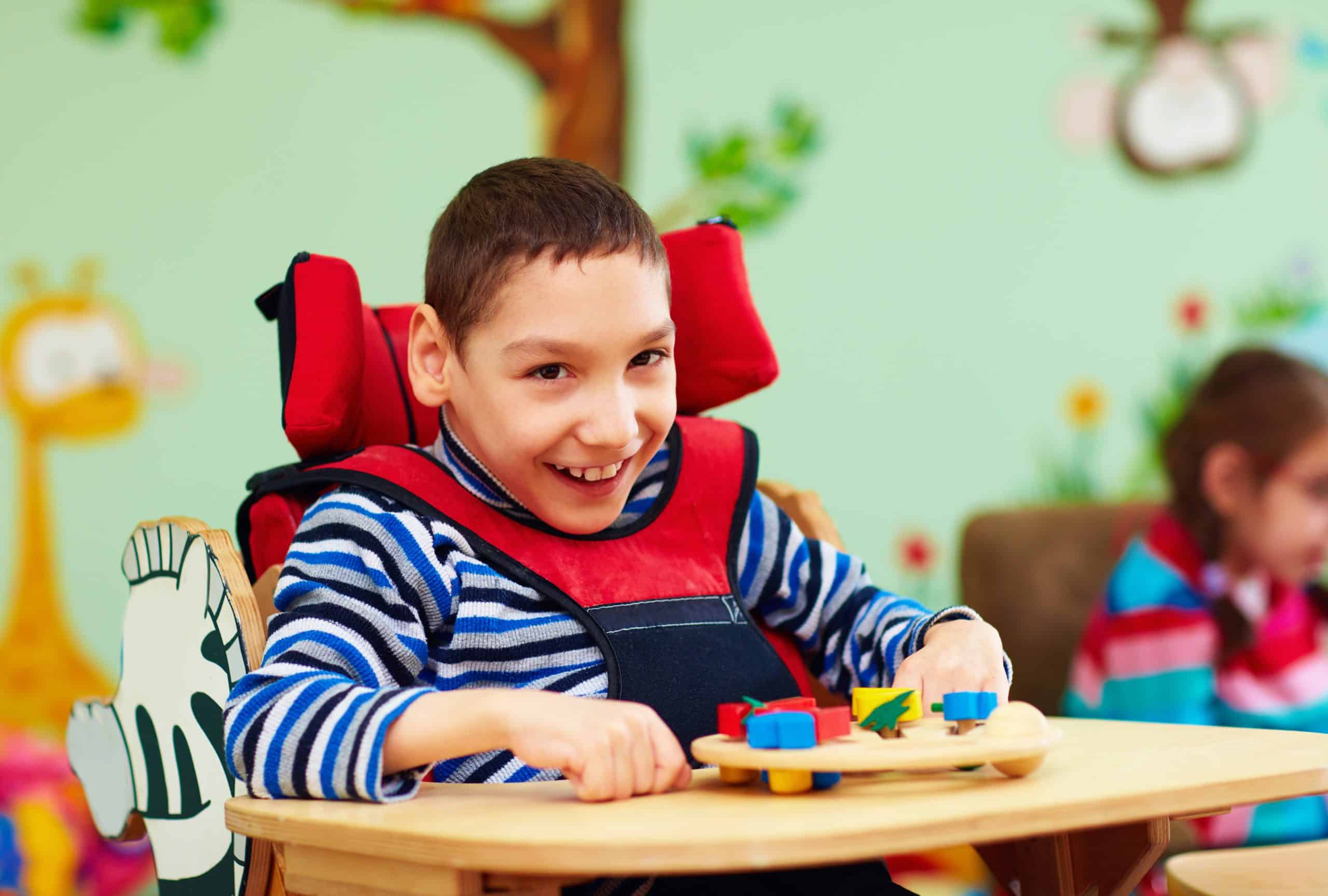Introduction
Developmental delay is a broad term referring to a delay in any of the four developmental areas. These are:
Global developmental delay refers to a delay in two or more of the above areas simultaneously.
Risk factors/Causes
Developmental delay has many different causes, including (1):
Table 1: Causes of developmental delay
| Category | Examples |
| Neurological | Congenital – antenatal vascular event, spina bifida
Acquired: hypoxic ischaemic encephalopathy (HIE), intraventricular haemorrhage, prolonged hypoglycaemia, traumatic brain injury, stroke, epilepsy |
| Infection | Congenital infections – e.g. TORCH infections (toxoplasmosis, rubella, cytomegalovirus/CMV, herpes/HSV)
HIV Meningitis – e.g. meningococcus Encephalitis – e.g. herpes virus |
| Neuromuscular disorders | Duchenne muscular dystrophy, Spinal muscular atrophy |
| Hypothyroidism | |
| Genetic disorders | Down syndrome |
| Pervasive developmental disorders | Autism |
| Metabolic disorders | Hurle syndrome, Krabbe’s disease, Phenylketonuria |
| Prematurity | |
| Idiopathic (no obvious cause) |

Figure 2. Graphic depicting early development signs of autism, one cause of developmental delay
Clinical features
Parents might bring a child to see you because:
- A child is not hitting the expected milestones – in any of the four developmental areas
- Referred by a Health Visitor as part of regular routine development checks
- Concerns raised by their early education setting or school
- Routinely followed-up more closely – for example children born extremely prematurely placing them at higher risk of developmental delay.
There might be concerns in a single area of development such as an 18 month old not yet walking but otherwise hitting milestones, or there might be a more generalised delay, such as a 2 year old who is not walking steadily, only uses one word sentences and is not able to imitate scribbles.
It is important to look for key red flags, such as:
Table 2: Red flags in developmental domains
| Developmental domain | Red flag |
| Social | Not smiling by 10 weeks |
| Gross motor | Not sitting unsupported by 12 months
Not walking by 18 months |
| Fine motor | Showing hand preference before 12 months of age |
| Speech and Language | Not knowing 2-6 words by 18 months |
If any of the above red flags are detected, the child should be referred for paediatric specialist assessment or investigated further.

Figure 3. Photo of a child with motor delay requiring support to sit after 12 months
Investigations
The aim of investigations is three-fold. That is to determine:
- The cause of the delay
- The likely prognosis
- Possible treatments.
First-line investigations for global developmental delay are as follows (1):
Table 3: First-line investigations in global developmental delay
| Investigation | Reason |
| Full blood count and haematinics | Iron deficiency and folate/B12 deficiency can cause developmental delay |
| Urea and Electrolytes | Renal failure and hyponatraemia can cause poor growth |
| Creatinine kinase | Duchenne Muscular Dystrophy |
| Thyroid function tests | Congenital hypothyroidism |
| Liver function tests | Metabolic disorders |
| Vitamin D | Deficiency can cause motor delay |
| Hearing test | Isolated speech and language delay is commonly due to a hearing impairment |
Second-line investigations may be helpful as directed by first line investigations or if the cause still unclear. Examples include karyotyping or DNA analysis, more detailed metabolic screens, MRI and EEG.
Management
If any child is suspected to have a developmental delay, they should be referred to a community paediatrician who will perform a detailed developmental assessment, as well as holistic assessment of the child and family. Community paediatricians often use a standardised developmental assessment such as the Griffiths Scales of Child Development or the Schedule of Growing Skills, to assess the child across the developmental domains.
Management is multi-disciplinary and involves referral to specialist therapists to support the child and family. These include speech and language therapists, occupational therapists, portage practitioners and orthoptists. Referral to a hospital paediatrician or specialist might also be indicated. If a reversible underlying cause is found, treatment for this should be instituted.
Complications
Only a few causes of developmental delay are reversible, most will result in chronic morbidity with the child requiring specialist support for many years.

